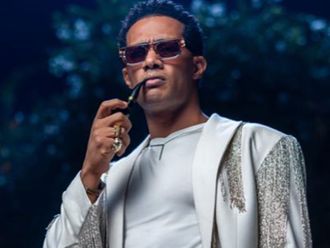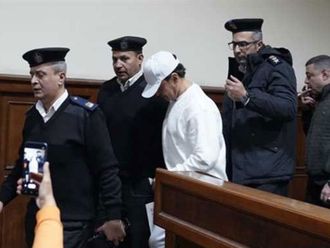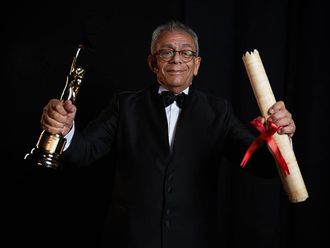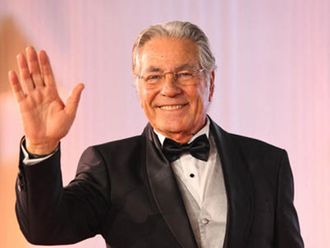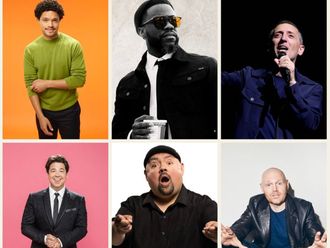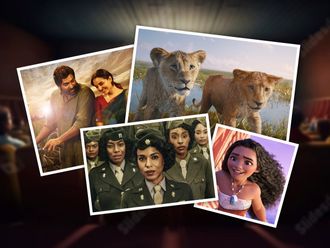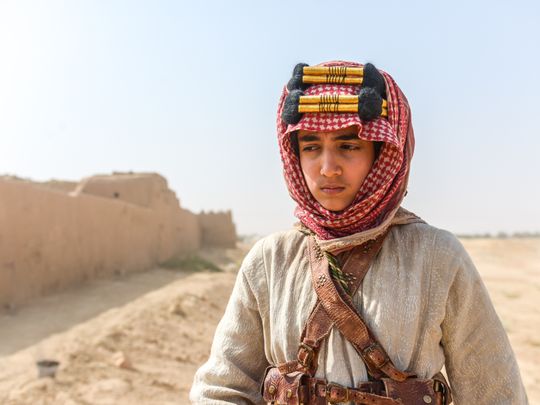
Though many filmmakers might have honed in on the assassination of King Faisal bin Abdulaziz in 1975, Oscar-winning Spanish producer Andres Vicente Gomez travelled further back in time to chronicle the young royal figure’s first visit to the UK in ‘Born a King’.
At only 13 years old, Prince Faisal is sent on a diplomatic mission by his father, then known as Emir Abdulaziz bin Abdulrahman Al Saud and later becoming King Abdulaziz, to meet with high-ranking English officials such as King George V, Winston Churchill and Secretary of State for Foreign Affairs, Lord Curzon.
Through his visit, the prince must secure the formation of what is today known as the Kingdom of Saudi Arabia. As he charms those around him with his maturity and grace, he manages to negotiate his country’s future, driven by a desire to make his father proud.
“You’ve tasted battle and how bitter it is,” Emir Abdulaziz tells him. “You will find that politics is even more bitter.”
In Dubai on Tuesday, King Faisal’s grandson, Prince Saud bin Turki Al Faisal, spoke about the importance of taking ownership over one’s own narrative through mediums such as film.
“I think it’s time for us to tell our story as it was and not let anyone else speak the story. Not just of Saudi Arabia, but the Arab Peninsula and Arab countries,” said Prince Saud.
“We wanted to start with the beginning of King Faisal’s life, as a diplomat in the beginning. [He] then became the viceroy of Hejaz and then Crown Prince and then King. We couldn’t fit his whole life in one movie,” he explained, adding that, “We are willing to expand and come up with a sequel.”
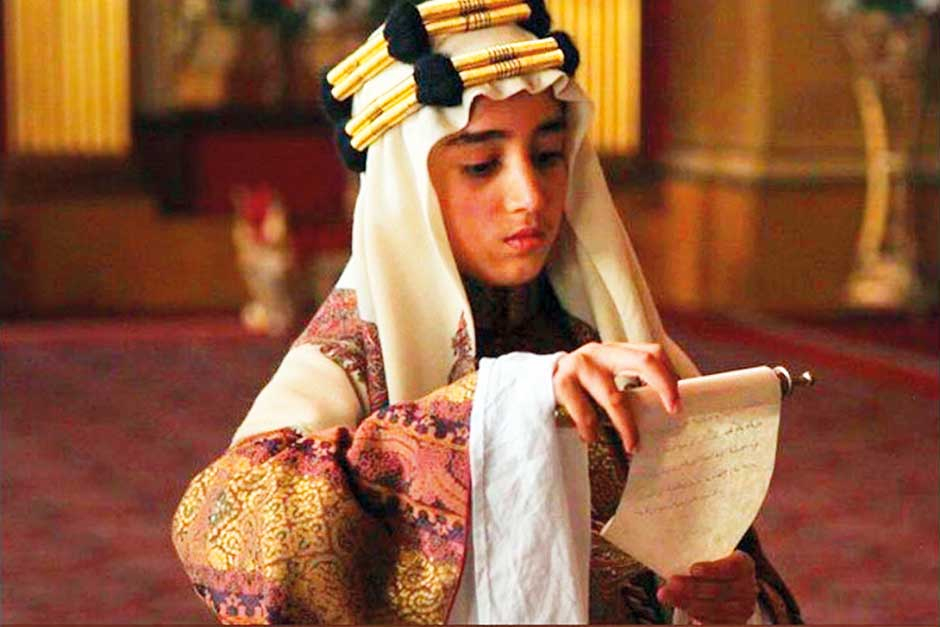
Through the King Faisal Foundation Centre for Research and Islamic studies — the core owner of the film — Prince Saud and his father Prince Turki bin Faisal Al Saud were able to revise the script and ensure historical and chronological accuracy.
“It was very emotional for myself and the rest of the family. Because for me myself, I didn’t live when he [King Faisal] was living. But we have a lot of content that can support this type of movie. So, we wanted to make it a cinematic movie, rather than a bio or documentary, because this way we have more freedom, especially with the script,” said Prince Saud.
THE RIGHT CAST
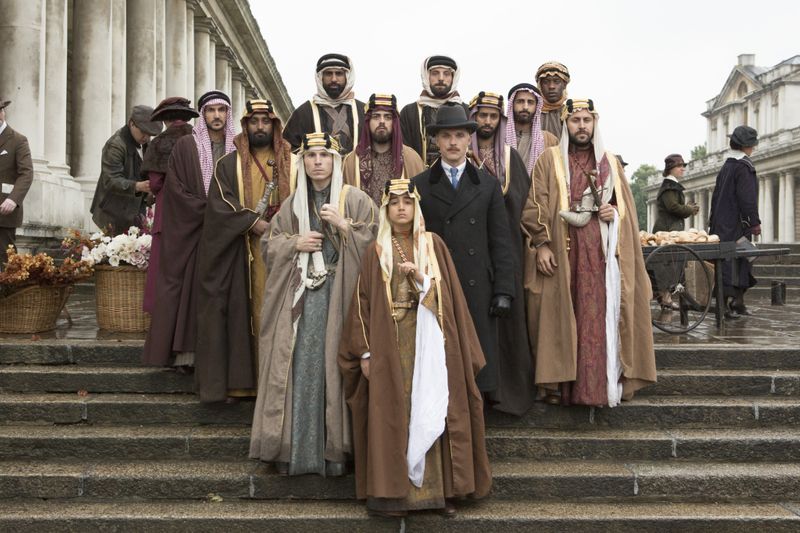
Producer Gomez said they were “very, very clear that they had to be Saudis, or else it wouldn’t be believable.”
They travelled to schools around the country searching for the perfect young man to play Prince Faisal and tested 200 people, before landing on newcomer Abdullah Ali.
“Finally, by accident we came across this [boy] who was at the American school in Jeddah,” said Gomez. “He was so brave and he was so willing to be an actor… Actually, he’s of Indian origin. He was born in Saudi — I think his mother is from Medina, but the father is Indian,” added Gomez.
There was also another role they had to get right: Emir Abdulaziz, played by Rakan Abdul Wahid (also known as Rawkan Binbella), an actor, rapper and model who is based between Los Angeles and Saudi Arabia.
“We searched and we discovered that Rakan was a young Saudi in Hollywood trying to be an actor, working as a model. He has an advantage — he’s a handsome man and tall,” said Gomez.
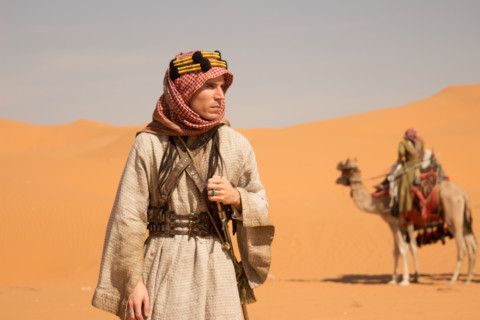
For a creative like Abdul Wahid, who speaks four languages — Arabic, English, Spanish and French — and whose dreadlocks peak out from beneath his red-and-white checkered guthra (traditional Saudi Arabian head garb), this was the role of a lifetime.
“If I was pigeonholed to a character like this, it’s not the worst,” he said. “I think it’s something people would aspire to reach later in their career, so for me to start with it, it could be a double-edged sword,” he told Gulf News tabloid! smilingly. “But I’m here for the journey, so wherever my path takes me home, I’m sure I’d be in the moment and present and enjoying it.”
The 32-year-old actor was born in Virginia and moved to Saudi Arabia at 18 months old. He was raised in Saudi “up until the age of 17 or 18” before he relocated to Boston. He had always been an artist from a young age, whether he was writing stories, painting or learning an instrument.
“When I got to college level, I had no choice scholarship-wise except for, you know, it’s the typical Middle Eastern thing — either you’re a doctor or an engineer. So, I chose to become an engineer. I also did my minor in business and maths,” he said.
Add to that a Masters in supply chain management and an MBA programme in engineering and project management.
“I believe having that right side of my brain as well as my left side of the brain active helps me in aspiring to become an artist,” said Abdul Wahid.
“I’ve actually been working on a bunch of music projects, I’ve shot five music videos myself for myself. I also have a clothing line that’s integrated within the music and the music videos, so it’s full transmedia. I haven’t released it yet. Because I wanted to honour the role of King Abdulaziz and let this maybe die a bit before I come out as a singer, rapper, with like, dynamic music videos,” said Abdul Wahid.
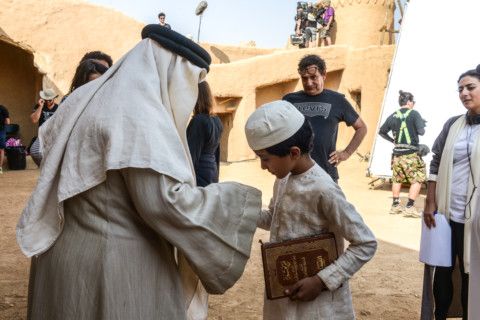
Said to hold a striking physical resemblance to King Abdulaziz, the budding actor prepared for his on-screen role by trying to find “the King Abdulaziz within me, as cheesy as that could sound.”
“There weren’t a lot of resources. There was a couple of documentaries, some books — you never know which one to follow. I attempted method acting, where I just try to find the character within me,” he said.
“I’m a team player, really, so I’m not trying to take the spotlight. I just wanted somebody to do the role justice. I actually got someone [else’s] audition and I was like, ‘This guy’s great. Please choose him.’ But you know, with more and more auditions, they tried to push for me to [take the role]. I’m more than honoured to.
“Honestly, I really hope this becomes like the opening door for shedding light on more artists in the region that never really had the chance to fulfil their passion or their dreams. I think it’s beautiful that we’re transitioning into a more open Saudi Arabia,” said Abdul Wahid.
“NOT EASY AT ALL”
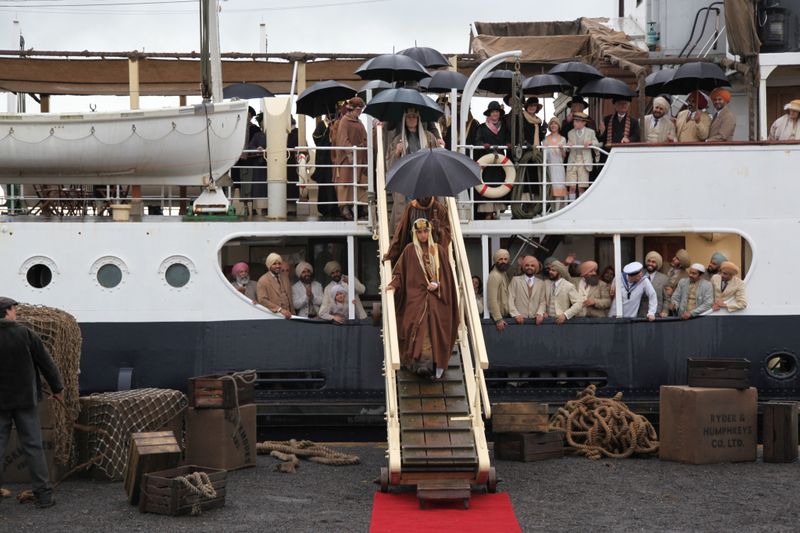
Gomez first discovered the story of young King Faisal in the business centre of a Saudi hotel, in 60 degree heat, as he idly browsed the internet. He wrote 11 pages out of it, which he would later recognise as the beginning of a three-year journey to creating ‘Born a King’.
The project, which cost $20 million (Dh73.45 million) to make, filmed between Saudi Arabia and the UK. According to Gomez, the most expensive part was recreating 20th century England.
“The reconstruction of England 1919 is not easy at all. We had to spend a lot of money on construction, special effects, digital effects, cars, et cetera. Some of these cars were costing us four or five thousand pounds a day,” said Gomez.
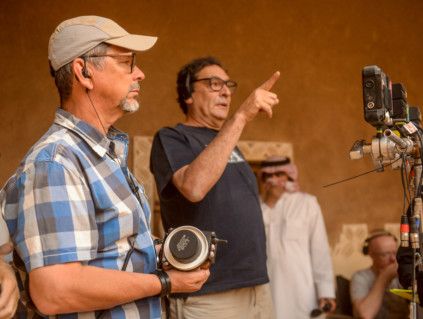
In comparison, “the shooting in Saudi Arabia was very low cost, because we had a lot of help from the government, from the National Guard. We have horses, we have camels we have soldiers. That’s why, when we show the film outside to professionals, they always say this is a $40 million dollar film,” he added.
The film’s characters alternate between Arabic and English throughout the film. Gomez said they took liberties to exclude the interpreters that would have been involved back then to avoid slowing down the film.
Balearic-Spanish director Agusti Villaronga helmed the project.
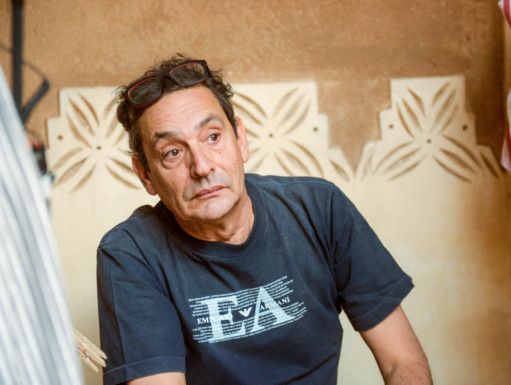
“From the first moment, I thought that instead of an action director, I needed to get an auteur,” said Gomez. “The film ended the support of a quality director … Every one of his films entered a major film festival.”
In 2017, Saudi Arabia lifted a 35-year ban on cinemas and ‘Born a King’ became the first Saudi film to screen in the country.
“When we first started the project, we didn’t have an idea that cinemas would be authorised in Saudi Arabia. So we were expecting to make a film for the world market — and we still do,” said Gomez.
“We choose this part of King Faisal[’s life] because we felt it was enough for a 90-minute film. Also, for me as a producer, I make my money by making movies. So, if they can make seven movies of Superman, why can’t we make 8 or 10 of King Faisal? After all, he represents the whole modern history of Saudi Arabia, from [1906] when he was born, to 1975,” he said.
——————————————————————
King Faisal: The history of his rise to the throne
King Faisal Al Saud was born in Riyadh in 1906 as the third son of the founder of the Kingdom of Saudi Arabia, King Abdulaziz bin Abdulrahman Al Saud, who fathered many children, including 45 sons. Raised by his maternal grandmother after losing his mother at only five months old, King Faisal was known for his courage, humility, decency and intelligence and was often delegated by his father to represent him during international visits.
He was appointed viceroy of Hejaz in 1926 and later served as Saudi’s minister of foreign affairs for more than four decades, from 1930 until his death in 1975, only interrupted by a two-year break. Alongside other Arab leaders, King Faisal, known for his pro-Palestinian stance, imposed an oil embargo on countries that supported Israel during the October War, which created an oil crisis in 1973. He was made crown prince of the Kingdom in 1962 and crowned King of Saudi Arabia in 1964. King Faisal’s reign ended when he was assassinated by his nephew in 1975 at the age of 68.
——————————————————————
Don’t miss it!
‘Born a King’ is out now in the UAE.



